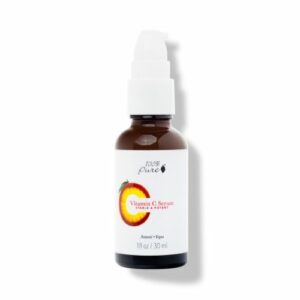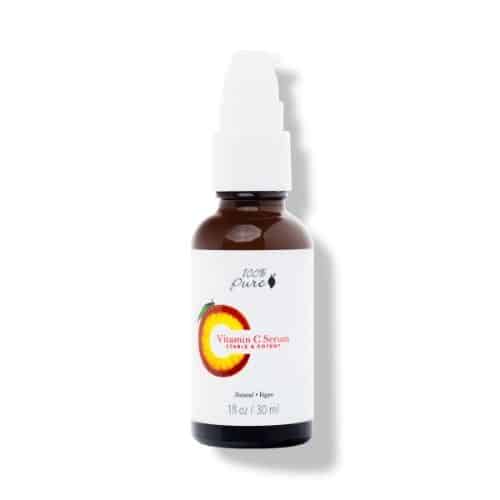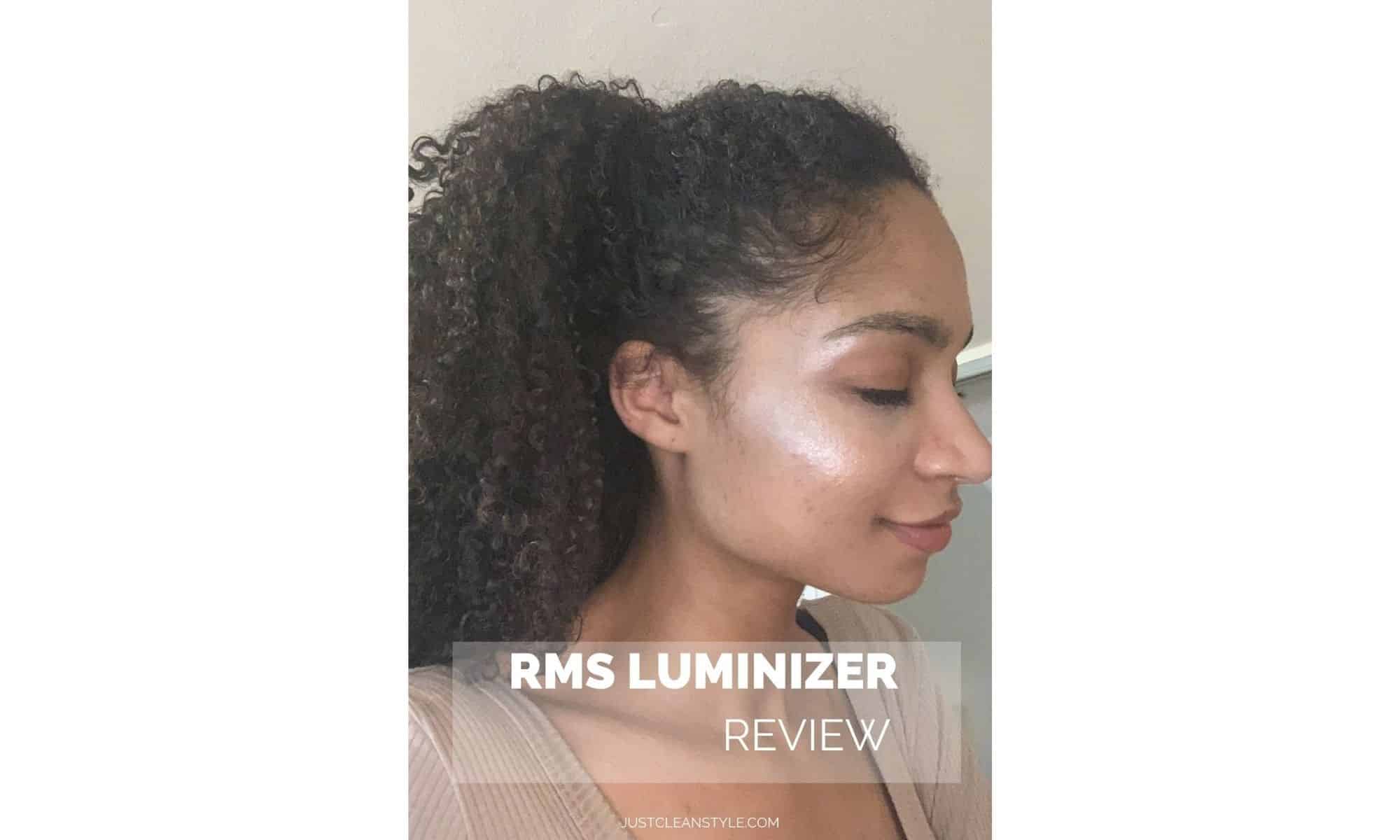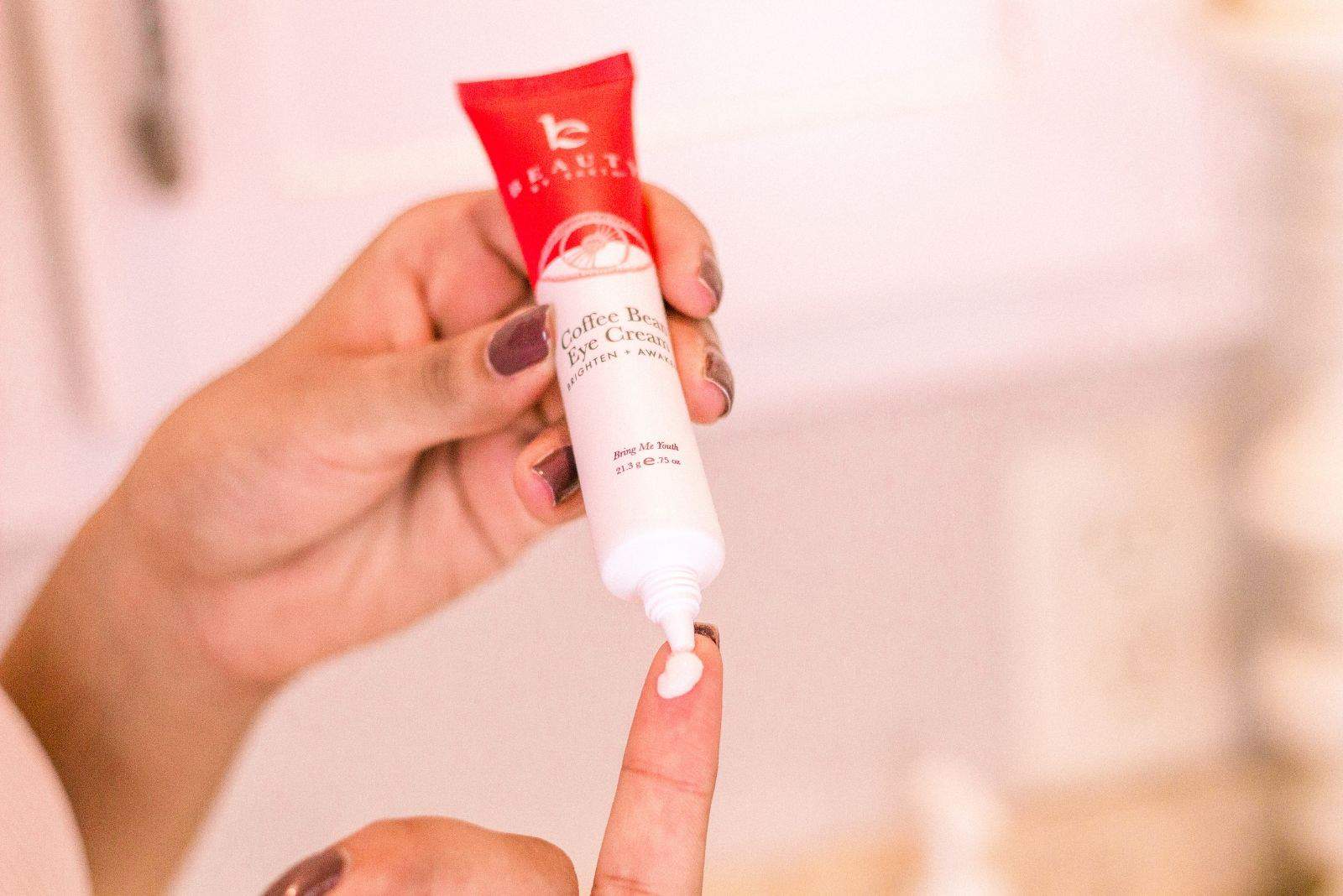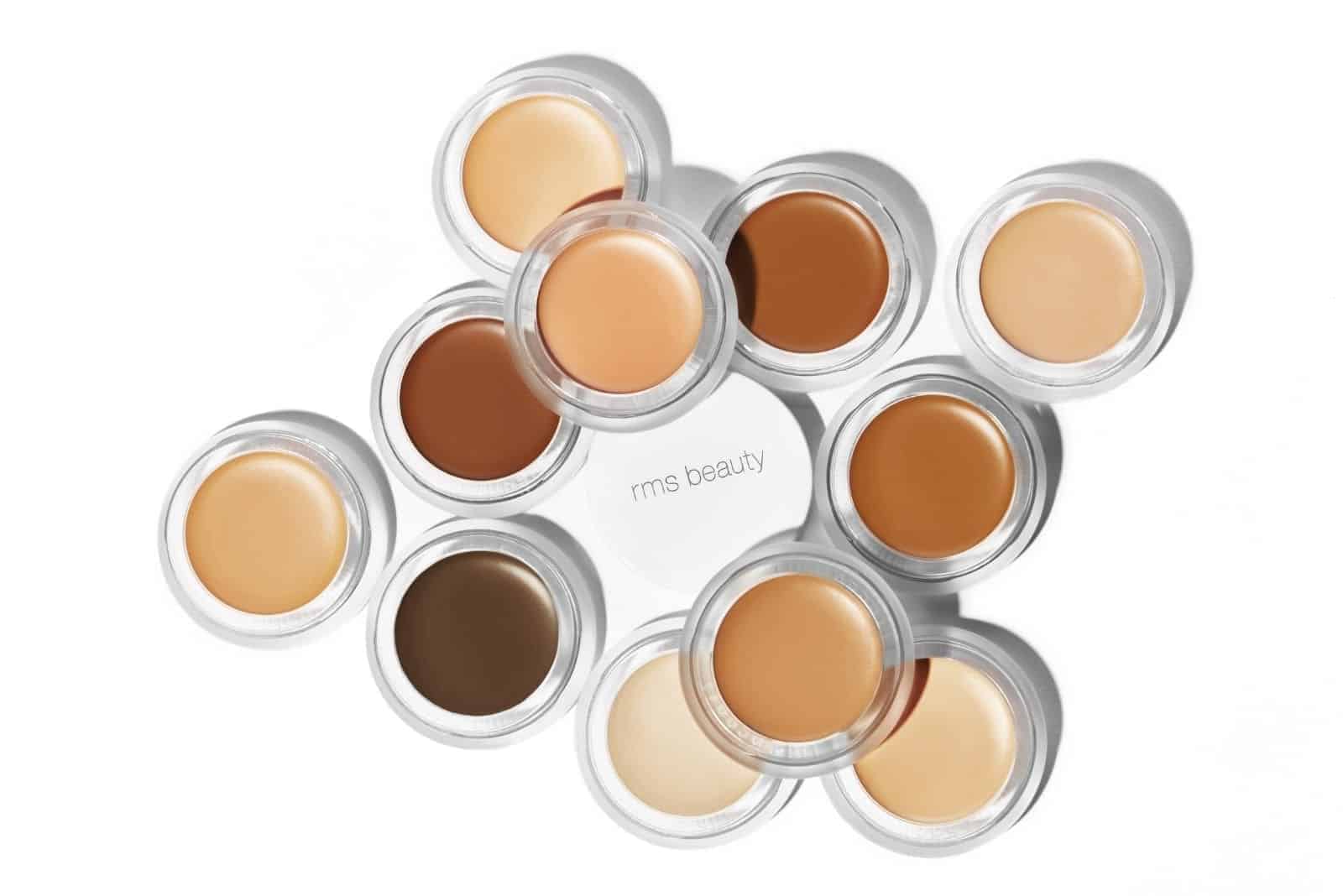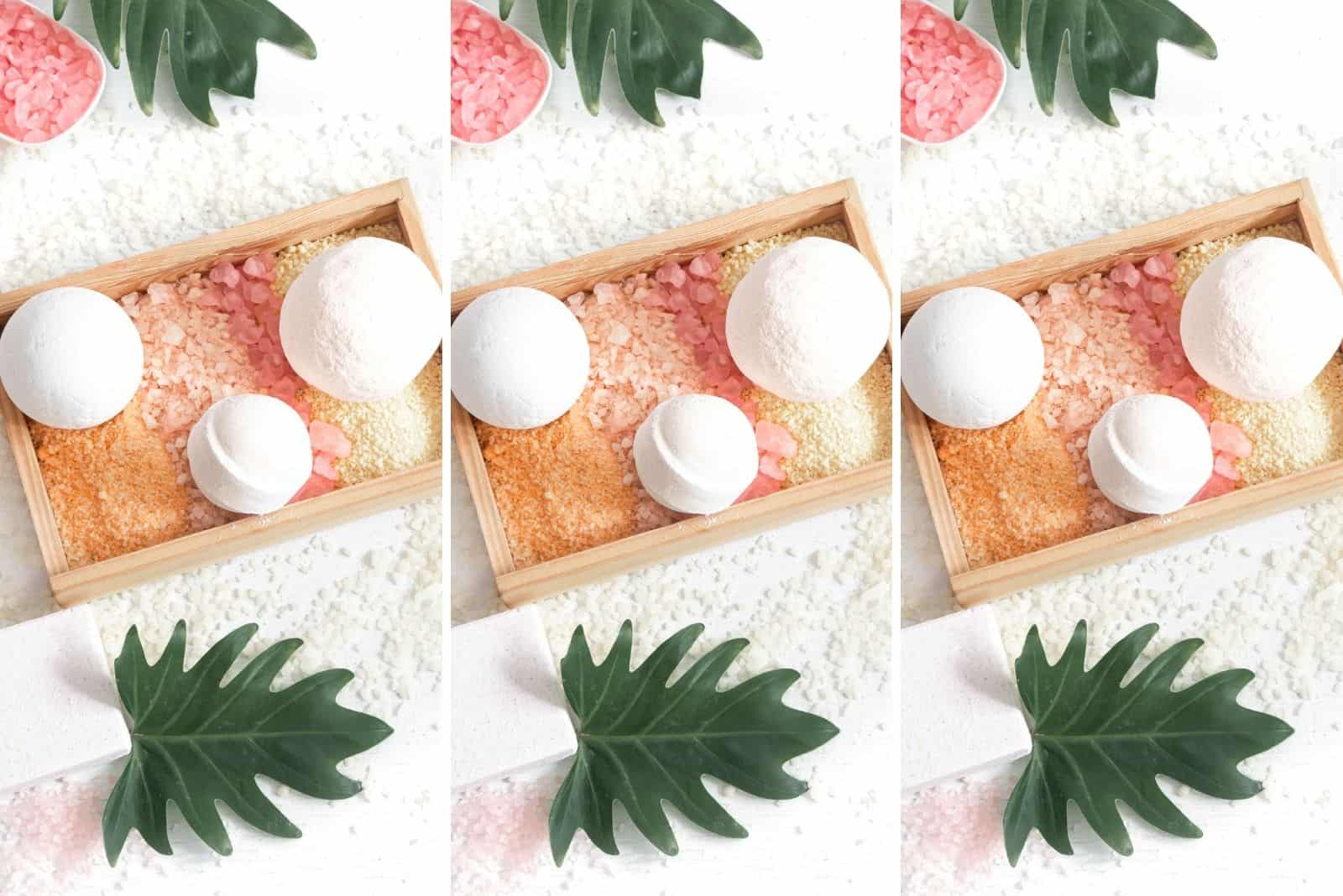There are numerous Vitamin C serum benefits for skin. Learn how to use Vitamin C in your skin care regimen for maximum results.
This post may contain affiliate links, which means I’ll receive a commission if you purchase through my links (at no extra cost to you). I only promote products I’ve tried and love. As an Amazon Associate I earn from qualifying purchases.

Vitamin C Serum Benefits
First, let’s discuss what a quality Vitamin C serum can do for your skin. Adding Vitamin C to your skin care routine can have amazing benefits. When applied topically, Vitamin C reduces the appearance of hyperpigmentation, assists with acne prevention by calming inflammation, provides protection from the sun, and supports collagen production for a youthful appearance. Vitamin C can also result in firm skin and wrinkle reduction.
SPF & Free Radical Protection
Vitamin C will not damage the skin or cause sun burn when applied in the morning despite popular belief. Vitamin C has also been proven by the National Center for Biotechnology Information [NCBI] to protect the skin against free radicals
According to the NCBI, Vitamin C “can [also] neutralize and remove oxidants, such as those found in environmental pollutants and after exposure to ultraviolet radiation.”
By enhancing the sun protection provided be SPF, Vitamin C protects the skin from the UV light that surpasses the protective barrier of sun screen. Vitamin C bonds to free radicals, creating a protective barrier. This is increasingly important as global warming and environmental pollution prompt scientists to examine the link between environmental pollutants and skin care.
“Because free radicals lack a full complement of electrons, they steal electrons from other molecules and damage those molecules in the process. Antioxidants neutralize free radicals by giving up some of their own electrons. In making this sacrifice, they act as a natural ‘off’ switch for the free radicals.”
harvard health publishing
NCBI scientists have yet to determine the link between Vitamin C and preventative disease management, but enhanced SPF protection is a critical step in preventing sun damage and a creating a healthy skin care routine.
Vitamin C Serum Renews Skin
Vitamin C increases cell turn over which renews the skin and allows scars to fade quickly. Cell turn over is a form of exfoliation that renews the skin and allows new products to be more effective as old skin is removed. This results in brighter skin and a smoother appearance.
Although Vitamin C serum helps promotes cell turn over, it is important to cleanse the skin before applying the serum.
Increases Collagen Production
Vitamin C also supports collagen production, an important protein that contributes to glowing healthy skin, by supporting enzymes vital to collagen production.
Collagen is a protein that creates that youthful glow by promoting skin elasticity and tightening the skin for a firmer appearance.
Soothes Acne and Reduces Hyperpigmentation
Vitamin c reduces inflammation and can help the skin heal from hyper pigmentation. This can have amazing benefits for people who suffer from acne scars and red spots.
When using vitamin c as a treatment for hyperpigmentation, it is important to remember that the process will take time. The topical treatment will not work as quickly as other treatments such as microderm abrasion. According to the National Center for Biotechnology Information, vitamin c is an effective treatment for acne scars.
How to Add Vitamin C to Your Skin Care Routine
Before you overhaul your skin care routine and add Vitamin C serum to your daily regimen, there are a few things you should know for maximum results.

Just like any change to your skin care routine, there are a few hacks you should know to make the process smoother:
- Exfoliation is crucial for maximum results
- Order of application matters
- Your skin will need time to adjust
It is vital to properly exfoliate before applying any serum. If you don’t the serum can sit on the top layer of your skin and will never be absorbed. According to the Linus Pauling Institute, the outer most layer of the skin is the biggest barrier to Vitamin C absorption.
To exfoliate effectively before hand, try a rose water cleanser or a charcoal cleanser. It’s best to use a natural cleanser like charcoal to avoid using microbeads. Micro beads are plastic beads added to face wash to help with exfoliation. The beads are flushed into the ocean and have a negative effect on marine life.

Vitamin C is most effective when applied before a moisturizer. Applying the serum before your moisturizer allows it to fully absorb. Also, it’s best to apply the lightest products in your routine first (for more see 3 Resources for the Best Skin Care Routine Order). It is vital to properly exfoliate before applying any serum, especially vitamin c.
Remember that your skin will need time to adjust. When you start using Vitamin C serum, it can take several weeks to see results. If you are using the serum for acne scars and hyperpigmentation, it can take even longer depending on how deep the scarring is. Other methods such as microdermabrasion or derma rolling can also help with acne scars and skin regeneration.
When you decide to apply your Vitamin C will depend on the benefits you need from the serum. The serum can be used every day. If you need to increase the effectiveness of your sunscreen for more SPF, apply Vitamin C during the day right before applying sun screen or mix the serum into your sun block.
If you need exfoliation or collagen production benefits, apply the serum at night to allow it to work all night long.
How you apply Vitamin C will also depend on the other products you use in your daily skin care routine. If you use Retin-A you will need to be careful about when you apply vitamin c.
Can You Combine Vitamin C and Retin-A?
If you use Retin-A remember to consult a dermatologist before adding too many products to your routine. According to the Skin Care Edit, using Vitamin C and Retin-A together can make both ingredients less effective. If you are using a prescription Retin-A, consult a physician to make sure the potency is correct for your skin.
Can I Use Vitamin C Serum Without Moisturizer?
Usually, it is recommended that you apply a moisturizer after applying serum because most serums are designed as a targeted treatment. Unless you are using a serum that says it’s moisturizing, you will likely want some extra moisturizer to prevent your skin from drying out. The type of moisturizer you use will depend on your skin type.
Vitamin C Serum Side Effects
Vitamin C serum might not be the best for you depending on your skin type and the products you use on a daily basis. If you use a Retin-A cream prescribed by an MD, it is best to consult your physician before making any changes to your routine.
If you have sensitive skin, there are some side effects you might experience from vitamin c such as dry skin or irritated skin. Itching and redness are usually a sign that you should consult a doctor.
Ascorbic Acid vs Citric Acid
Vitamin C is also known as ascorbic acid, and it not the same as citric acid. Citric acid is a common preservative derived from any citrus fruit. According to WebMD, “Citric acid is a weak acid that is found naturally in all citrus fruits.” Although citric acid is an effective exfoliator, it does not contain the same properties as Vitamin C.
Citric acid is often found in bath products or carbonated products that produce a fizz. It is also common in dietary supplements and food industry products. There is more than one type of citric acid, and most found in the food and cosmetic products are artificially produced.
According to Healthline, “citric acid is naturally found in citrus fruits, but synthetic versions — produced from a type of mold — are commonly added to foods, medicines, supplements, and cleaning agents.”
Some people have allergic reactions to citric acid, which is why it is important to understand the difference and to use ingredient databases to determine ingredients and assess safety on an individualized basis.
The Best Vitamin C Serum
According to 100 Pure, this serum is a “lightweight, stabilized vitamin C serum made in a base of hydrating and soothing aloe gel. This serum also helps to firm and brighten skin tone, while promoting collagen production. Includes radiance-boosting green apple and grape, plus alpha lipoic acid (ALA) for fighting oxidative damage that can prematurely age or darken the skin.”
The Vitamin C Serum be 100% Pure contains the following ingredients: Organic Aloe Gel, Vitamin C, Vegetable Cellulose, Vitamin E, Xanthan Gum, Green Apple Extract, Grape Extract, Vitamin B5, Superoxide Dismutase Antioxidant, Alpha Lipoic Acid, Broccoli Seed Oil, Flax Seed Oil, Evening Primrose Oil, Canadian Willow Bark Extract, Witch Hazel, Ethyl Hexyl Glycerin
Recap: Vitamin C Serum Benefits
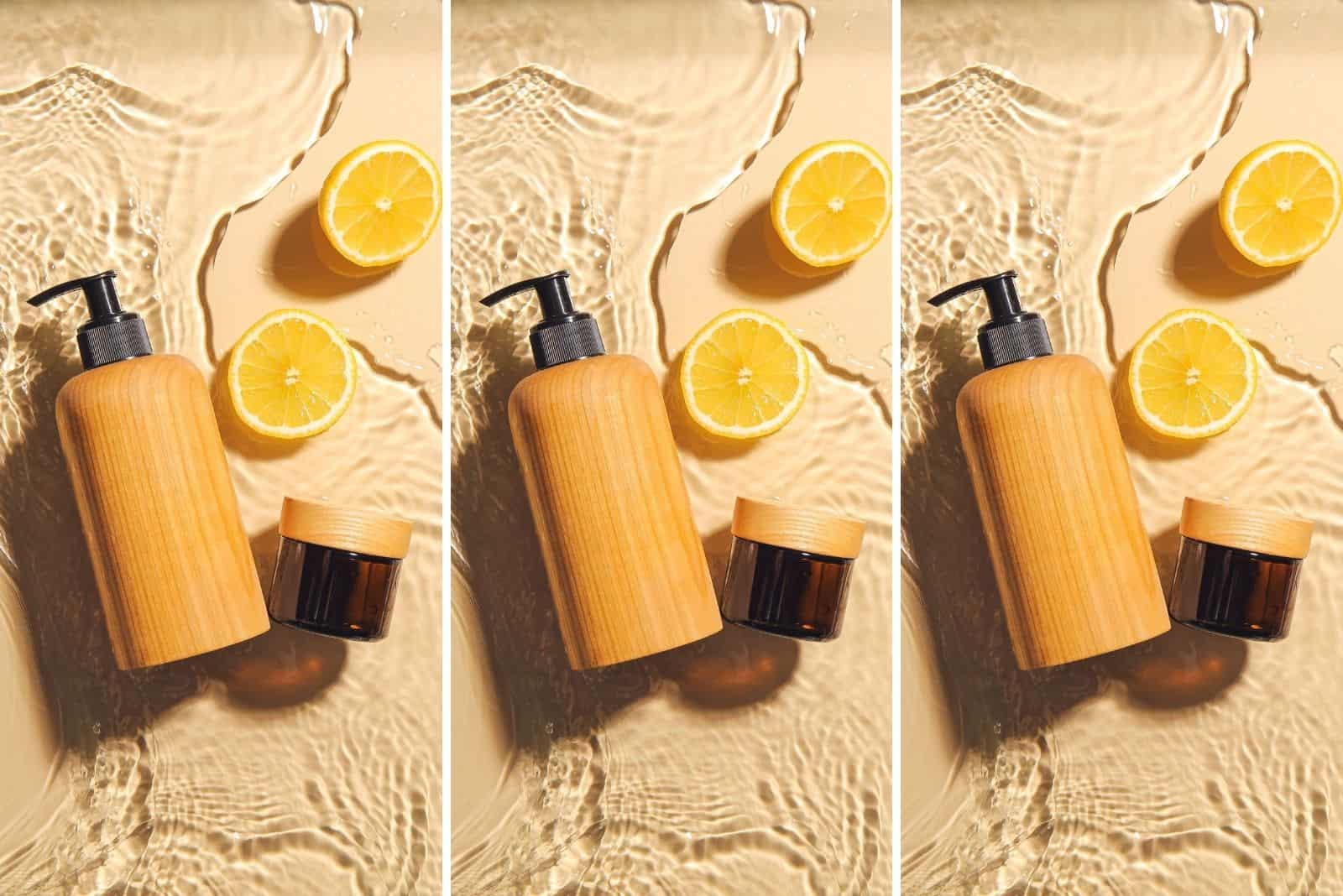
Vitamin C serum is a powerful skin care ingredient for increasing collagen production, evening the skin tone, reducing fine lines, quelling inflammation, and promoting an overall youthful appearance. When combined with SPF, vitamin C helps your sun block work better. For sun screen and other FSA eligible essentials on Amazon, you can click on the link below to review products.
Save to Pinterest



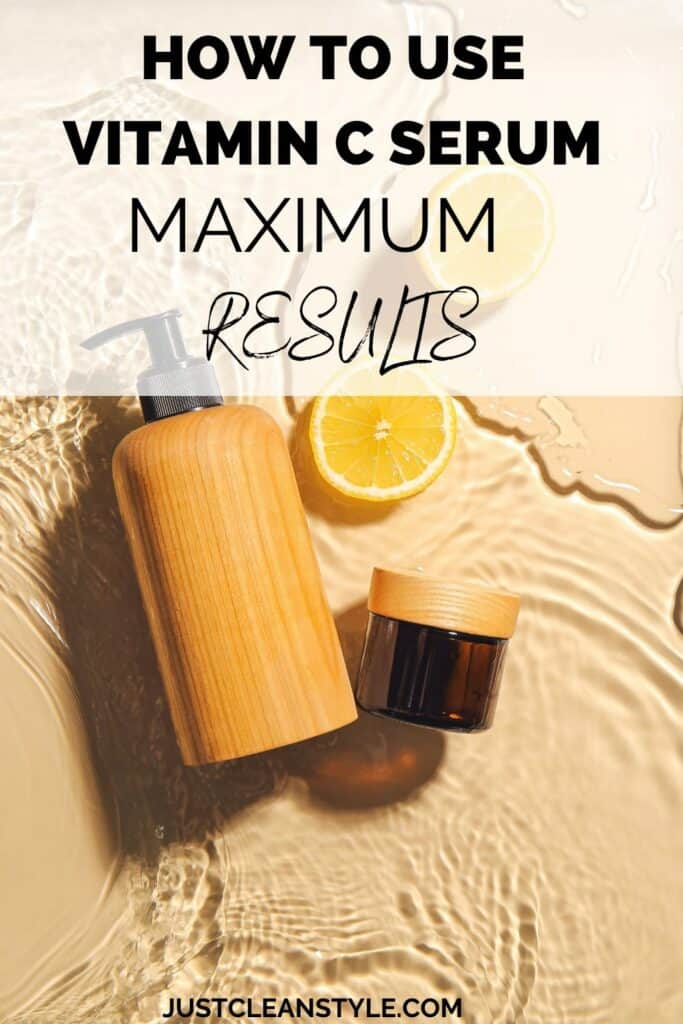
You'll Also Love
Credits
Legal
© 2021-2023 Just Clean Style
JCS is a participant in the LTK and Amazon Services LLC Associates Program, an affiliate advertising program designed to provide a means for sites to earn advertising fees by advertising and linking to Amazon.com or Like to Know It Affiliate Programs.
You deserve the best in beauty and business.
